BCU condemned information attacks on advocacy
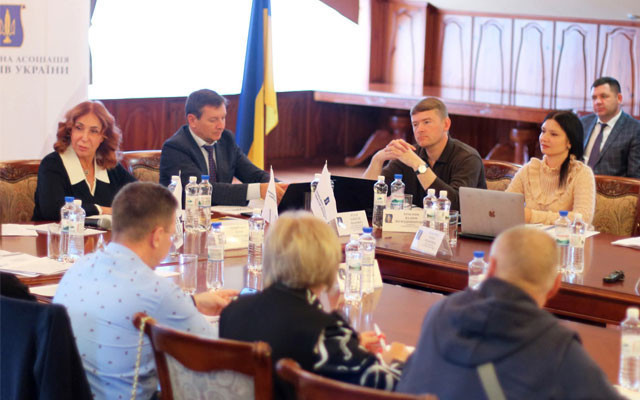
Bar Council of Ukraine strongly condemned the coordinated campaign to discredit advocacy, in particular the leadership of the Odessa region bar association. Protecting colleagues from manipulation and misrepresentation became a separate item on the agenda of the BCU meeting on October 17–18.
Recently, social networks and certain media outlets have been flooded with provocative publications against the advocacy institution, presenting the defense of an advocate as support for crime. The acting chairman of the Odessa Regional Bar Council Olena Dzhaburia, has come under fire for fulfilling her professional duty to defend a colleague in accordance with a decision by the regional bar association.
As is known, Odessa advocate Olga Panchenko was notified of suspicion under Part 1 of Article 260 of the Criminal Code and detained during criminal proceedings, where she was defending the suspect.
The Bar Council of the Odesa Region applied to the court with a request to take their colleague on bail. O. Dzhaburia initiated this decision. The court granted the request, and the advocate was released from custody.
After the court decision, a number of online publications and social media accounts published materials containing blatant manipulation: O. Dzhaburia's actions were directly linked to O. Panchenko's suspicion, hinting at alleged support for crimes against national security.
A classic manipulative technique was used: the guarantor was presented as an accomplice, the defense of the advocate's professional rights was equated with support for possible crimes of the client, and adherence to the presumption of innocence was presented as a betrayal of the interests of the state.
The President of the UNBA, BCU Lidiya Izovitova, was categorical: such publications have the hallmarks of a smear campaign involving media resources that are coordinating the dissemination of distorted information. They create the impression that their source is law enforcement agencies, although this is not true. At the same time, she presented a response from the Security Service of Ukraine stating that no criminal case is being investigated against O. Dzhaburia.
The chairman of the Committee for the protection of professional rights of advocates of the Odessa Regional Bar Council Vadym Semenov, who was O. Panchenko's defense attorney, confirmed that no procedural actions had been taken against O. Dzhaburia. The published materials do not correspond to the actual circumstances of the case.
Oksana Kadenko, a member of the BCU from the Khmelnytskyi region, emphasized that a request for bail is a legal procedural step provided for by the Code of Criminal Procedure. A person who takes someone on bail cannot be identified with the person for whom they are taking responsibility. Publicly identifying an advocate with persons under criminal prosecution is contrary to the Constitution and the principle of presumption of innocence. And Hanna Lazarchuk, a member of the BCU from the Rivne region, called the actions of the BCU of the Odesa region an example of the proper performance of the tasks of a lawyer self-government body.
The Vice President of the UNBA, BCU Valentin Gvozdiy gave a harsh assessment of the situation: the information attacks, which intensified after the start of the war, are systematic and coordinated. They are directed not only against individual advocates, but also against the institution as a whole – by identifying defenders with their clients. This is an unprecedented practice in the recent history of the Ukrainian advocacy.
V. Gvozdiy proposed radical steps: to appeal to the donors and partners of those public organizations that spread false information, as well as to EU institutions, with a call to stop funding projects that violate human rights and discredit the constitutional institution of advocacy.
The chairman of the Committee for the protection of advocate's rights and guarantees of legal practice of the UNBA Yevheniy Solodko called the case of O. Dzhaburia another example of the systematic discrediting of the institution of defense. Such publications create a distorted image of advocates as a «fifth colum» in society and are aimed at undermining trust in the profession, which ensures the constitutional right to defense.
Y. Solodko called on other regional bar associations to use this method of defense in similar cases. In addition, he proposed:
- to appeal to the Ministry of Justice with a lawsuit to terminate the state registration of NGOs that discredit the constitutional institution of advocacy;
- to prepare materials for bringing to justice persons who publicly discredit advocates.
The BCU unanimously confirmed the legality of the actions of the Odessa Regional Bar Council and condemned attempts to discredit the leadership of advocacy through manipulative publications.
The main message of the legal community is clear: defending the professional rights of an advocate does not mean supporting the crimes of a client. The presumption of innocence does not mean sympathy for criminals. And the performance of the statutory tasks of the UNBA does not mean betrayal of national interests.
Advocacy will not succumb to provocations and will continue to defend the constitutional right of every citizen to legal assistance.
Popular news
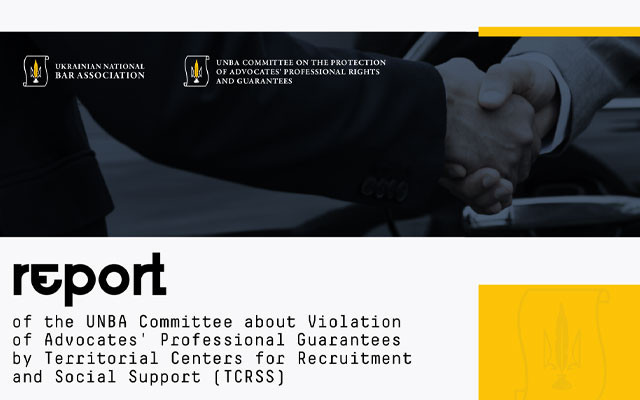
Guarantees of the practice of law
The UNBA presented a report on violations of advocates' rights in the TCC
The Committee for the protection of advocate's rights and guarantees of legal practice of the UNBA has prepared a consolidated report on violations of advocate's professional rights and guarantees of legal practice by territorial recruitment and social support centers for the period from 2022 to the first half of 2025.
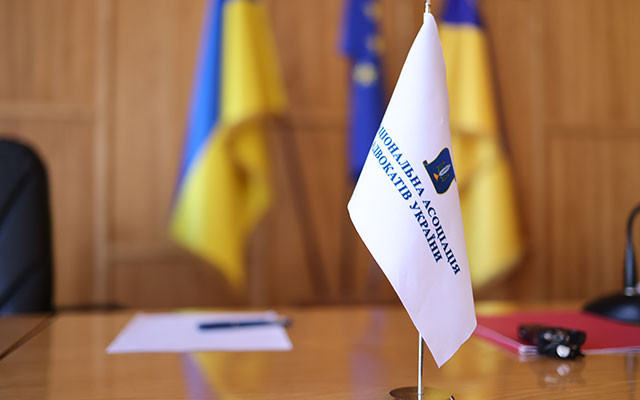
Self-government
Statement by the UNBA Committee regarding manipulative journalistic material
Statement by the UNBA Committee on information policy and interaction with the media regarding manipulative journalistic material aimed at discrediting the advocacy institution.
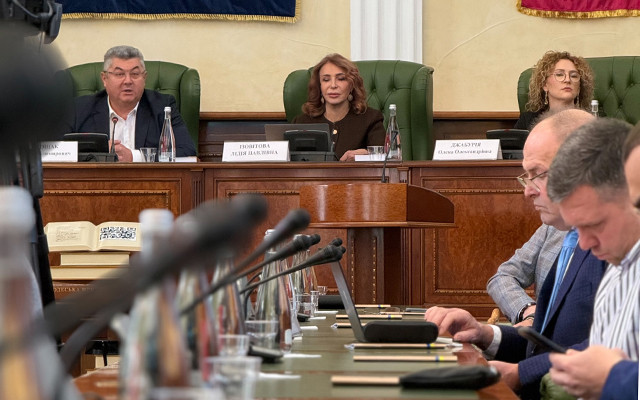
Guarantees of the practice of law
L. Izovitova: today advocacy maintains its independence and fights for guarantees for the profession
The Ukrainian advocacy remains an independent, constitutionally recognized institution of justice, which, in the conditions of war, has not only retained its subjectivity, but also consistently fights for guarantees to protect the profession.
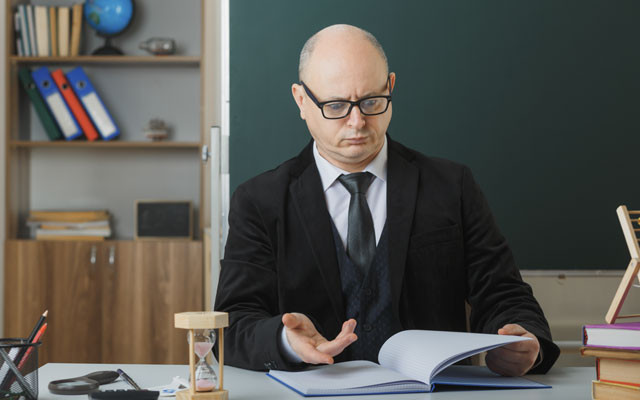
Access to the profession
For candidates for the advocate: BCU has reminded them of the rules for crediting teaching experience
For the purposes of admission to the qualification exam, a candidate's work in scientific and teaching positions may be counted as experience in the field of law only if the position requires legal education.
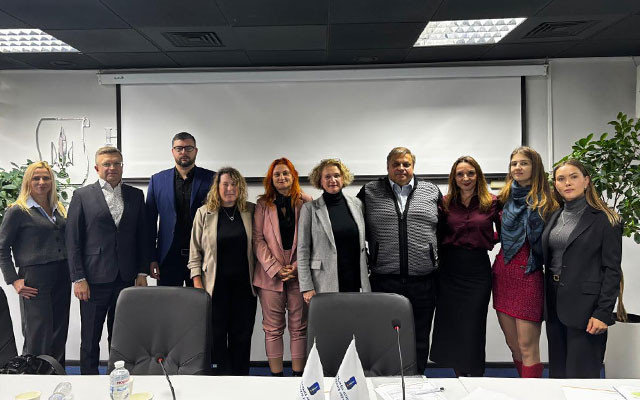
Discussion
Urban Planning Code: what should the new rules for rebuilding Ukraine be?
Does Ukraine need separate codification in the field of urban planning, which model of law to choose, and how to ensure a balance between the interests of the state, communities, businesses, and citizens in the context of post-war reconstruction?
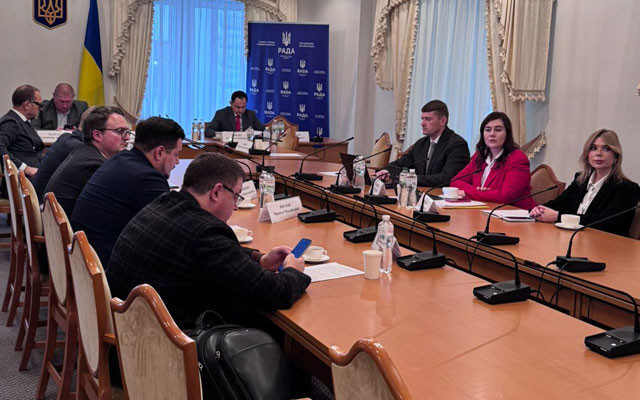
Guarantees of the practice of law
The Verkhovna Rada took another step towards ratifying the Convention on the protection of the profession of advocate
On November 5, the Verkhovna Rada held a working meeting dedicated to the translation of the Council of Europe Convention on the protection of the profession of advocate for its subsequent signing and ratification. The issue was initiated by the Ministry of Foreign Affairs, which drew attention to the key term «lawyer» in the international treaty.
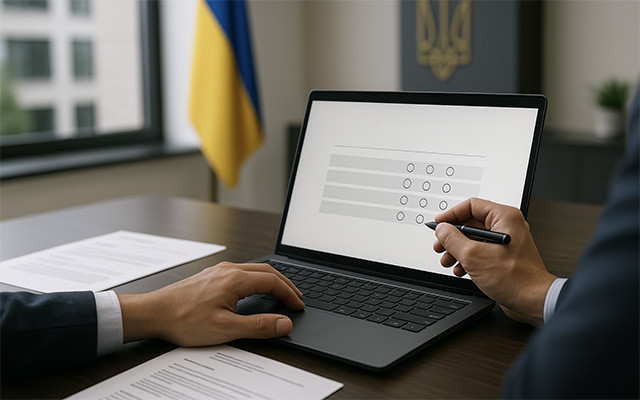
Interaction
NACB is looking for corruption risks in its activities. Advocates are asked to help
The National Anti-Corruption Bureau of Ukraine has launched a survey aimed at gathering information to identify corruption risks in the activities of the National Bureau and prepare an Anti-Corruption Program for 2026–2028.
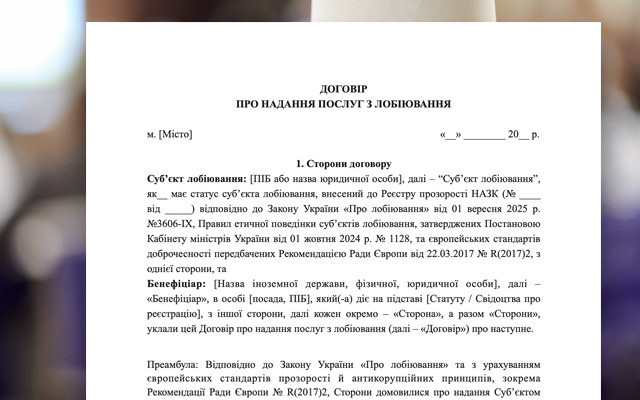
Interaction
Agreement on the provision of lobbying services: a template for advocates has been developed by the UNBA
The Ukrainian National Bar Association has prepared a model agreement for the provision of lobbying services that complies with the requirements of the relevant law and takes into account the specific features of such activities carried out by persons providing legal assistance.
Publications

Censor.net Protecting advocates – protecting justice: addressing concerns about the new law

Ihor Kolesnykov A BRIEF SUMMARY REGARDING THE APPLICATION OF THE ORDER ON EXTENDED CONFISCATION IN LATVIA REGARDING FINANCIAL ASSETS OF…

Valentyn Gvozdiy WORKING IN A WAR ZONE

Lydia Izovitova Formula of perfection

Sergiy Vylkov Our judicial system is so built that courts do not trust advocates

Iryna Vasylyk Advocacy in the proclamation of Independence of Ukraine

Oleksandr DULSKY When we cross the border of the Supreme Anti-Corruption Court, we get into another department of the National Anti-Corruption…

Vadym Krasnyk The UNBA will work, and all obstacles and restrictions are only temporary inconveniences
